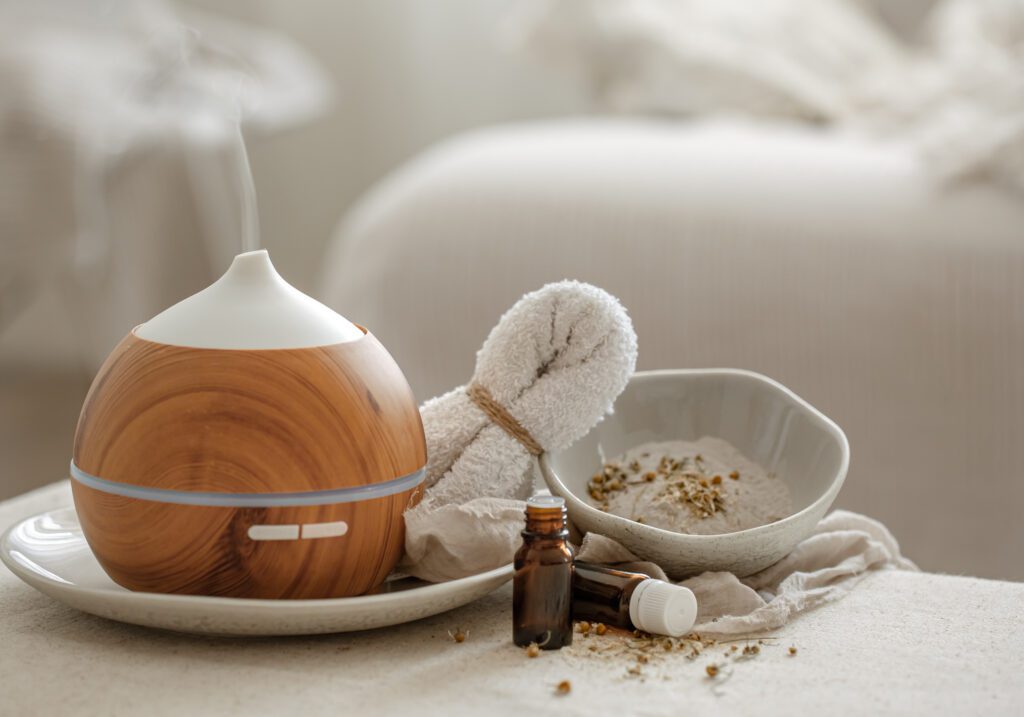
What Are The Benefits Of Aromatherapy?
Aromatherapy has been practised by humans for many years. Ancient cultures in India, Egypt, and other places used aromatic plant components as resins, balms, and oils. These organic compounds were put to use for medical and religious purposes. They were supposed to provide both physical and psychological benefits.
René-Maurice Gattefossé, a French perfumer and chemist, was the first person to coin the term “aromatherapy” in a book published in 1937.
Let’s dive deep into what aromatherapy is and the benefits associated with it.
What is Aromatherapy
Aromatherapy is considered both an art and a science.
Aromatherapy is a holistic treatment approach that uses natural plant extracts to promote health and well-being. It’s sometimes referred to as aromatherapy essential oil treatment. Aromatherapy is a therapeutic practice that uses aromatic oils to boost the health of the body, mind, and spirit. It promotes both physical and mental health.
Aromatherapy activates the smell receptors in your nose, which convey messages straight to your limbic system in the brain. The limbic system influences emotions, memory, learning, appetite, and sexual desire. In addition, different physical responses, such as breathing patterns, blood pressure, and heart rate, are stimulated by inhaling essential oils.
Benefits of Aromatherapy
-
Relieves Stress
Aromatherapy massage has been shown to have a relaxing impact on the human mind, resulting in stress reduction. Given the amount of strain that each individual faces on a daily basis, stress becomes unavoidable.
Essential oils are quite effective at relieving tension. To maintain a healthy balance in your body, the massage helps to soothe your nerves and drop your blood pressure and pulse rate.
-
It gives a boost to energy
Do you frequently succumb to the awful 3 p.m. afternoon slump? You’ve run out of coffee and are starting to lose steam. Rather than reaching for your fourth cup, why not try a caffeine-free alternative?
Essential oils can awaken your senses and put a spring in your step. Citrus oils, and lemon, are rich in antioxidant terpenes, which have revitalising properties.
-
Act as Antidepressant
Along with dealing with stress, aromatherapy is widely used to alleviate feelings of sadness, and due to pharmaceutical antidepressant complexity, this is a critical function of aromatherapy. This is an effective complementary treatment, but if depression persists or worsens, then psychological help or counselling should be sought. Chamomile, Peppermint, Jasmine, & lavender are the essential oils used for depression relief, according to most experts.
-
Strengthen Immune System
Most medical specialists agree that it is far better to prevent than treat, and aromatherapy can significantly strengthen your immune system if used correctly. The anti-fungal, anti-microbial, and antibacterial properties of essential oils can save you against a variety of ailments and infections that can harm your body. This field of aromatherapy is quite popular and extensively researched. Oregano, frankincense, lemon, peppermint, cinnamon, and eucalyptus essential oils are among the most potent immune-boosting essential oils.
-
Alleviates Pain
Even if analgesics treat pain, they can have a variety of adverse effects on the body. However, if aromatherapy can cure dozens of various forms of pain without causing harm, why not use it? One of the most beneficial applications of aromatherapy is pain reduction. Clary sage, Lavender, juniper, chamomile, eucalyptus, rosemary, and peppermint essential oils are among the best essential oils for professional and personal use.
-
Aids in Sound Sleep
Depriving ourselves of sleep can worsen or cause a wide range of medical disorders, as well as feeling unproductive and drained of energy. Fortunately, aromatherapy can offer us better sleep schedules and even reset our circadian cycles so our body naturally feels sleepy at the right time, sleeps restfully throughout the night, and wakes up energised to face the day. Lavender, chamomile, benzoin, jasmine, neroli, rose, sweet marjoram, ylang-ylang & sweet marjoram essential oils are the finest for managing sleeping habits and having a good, calming influence on the body.
-
Encourages Deep Breathing
When was the last time you took a deep breath that completely filled your lungs, made you feel at peace, and let all the stress off of your shoulders? If you can’t remember, aromatherapy may be just what you need to remind you to take deep breaths. When you inhale the perfume, you start the process of deeper breathing. Introducing the chemical ingredients included in the oil to your body improves the experience of deep breathing.
-
Improves Digestion
Although digestive difficulties are not the most well-studied area of aromatherapy, they can undoubtedly be addressed with it. It can help with constipation, indigestion, and bloating, as well as speed up metabolism so that food is processed more quickly. Citrus essential oils, such as lemon and orange, are typically the most efficient for treating digestive issues, although some studies have shown ginger, dill, fennel, chamomile, clary sage, & lavender to be effective as well.
You can also read our other blogs –





For all you football fanatics, bet69 kèo bóng đá is the place to be! They’ve got all the latest odds and info on every game you could want! Game on! bet69 kèo bóng đá
W88nhacai? Alright, alright, let’s hope this is the lucky spot. Gonna try my hand at some games and see what happens. Hoping for big wins! Get lucky with w88nhacai!
Alright, alright, alright… ph88bet is my betting hub. Good odds and a smooth experience overall. Give it a shot, huh? ph88bet
Need a quick log-in and some betting action? cw777login’s the place. No fuss, just straight to business. That’s what I’m talking about! cw777login
SV88us… not gonna lie, it’s got some decent betting options. Worth a peek if you’re shopping around for something new. Just sayin’. sv88us